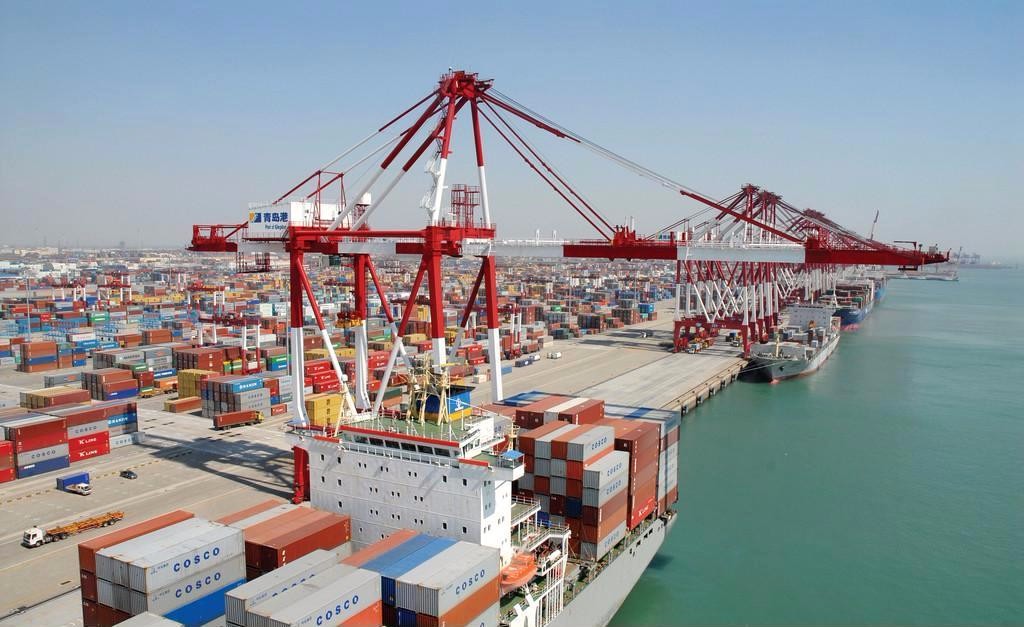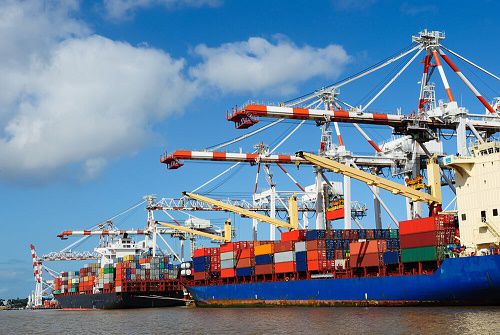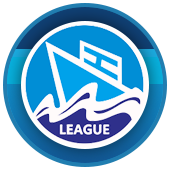EXW ex factory, FCA to carrier, FAS free alongside ship... These 13 trade terms must be clearly defined
 Feb 20, 2024|
Feb 20, 2024| View:139
View:139The basic terms of freight forwarders are EXW, FCA, FAS, FOB, CFR, CIF, CPT, CIP, DAF, DES, DEQ, DDU, DDP.
These 13 trade terms, from left to right, the obligation of the seller is increasing, and vice versa for the buyer. In other words, in the above trade terms, the seller bears the minimum liability under the EXW term, while the seller bears the maximum liability under the DDP term.
Delivered from EXW factory
Delivery is completed when the Seller places the Goods at the disposal of the Buyer at its place or other designated place (such as workshop, factory or warehouse), without the Seller going through export clearance or loading the goods on any means of transport.

This term is the term for which the seller bears the least liability.
FCA delivery carrier
It refers to the seller as long as the goods in the designated place to the buyer designated carrier, and the export clearance procedures, that is, the completion of delivery.
It is important to note that the choice of delivery place has an impact on the obligation to load and unload goods at that place. The term can be used for various modes of transport, including intermodal transport.
FAS free alongside ship
It means that the seller delivers the goods to the ship at the designated port of shipment, that is, the delivery is completed. The buyer must bear all risks of loss of or damage to the goods from then on.
FOB terms
It refers to the name of goods + quantity + unit price +FOB+ port of shipment. The risk transfer is transferred when it crosses the ship's rail. As the goods did not cross the ship's rail, the liability shall be borne by the seller company.
If, during the lifting, the boom breaks and the cement falls into the ship's board instead of the sea, the risk is transferred to the buyer, and this responsibility should be borne by the buyer company.
CFR cost and freight
Delivery is completed when the goods cross the ship's rail at the port of shipment and the seller must pay the freight and expenses required to transport the goods to the designated port of destination.
However, the risk of loss of or damage to the goods after delivery, as well as any additional costs due to various events, is transferred from the Seller to the buyer.
This term applies only to sea or inland waterway transport. If the parties have no intention of delivering over the ship's rail, the CPT term should be used.
CIF cost, insurance and freight
Delivery is completed by the seller when the goods cross the ship's rail at the port of shipment. The term applies only to maritime and inland waterway transport.
The term CIP shall be used if the parties do not intend to deliver over the ship's rail.
CPT freight payable to (designated destination)
It means that the seller delivers the goods to its designated carrier (cargo to carrier), but the seller must also pay the freight for transporting the goods to the destination. That is, the buyer shall bear all risks and other expenses after delivery.
CIP freight and insurance
It means that the seller delivers the goods to the international forwarder designated by the seller, but the seller must also pay the freight for the delivery of the goods to the destination, that is, the buyer bears all risks and additional costs after the delivery of the goods by the seller.
The term can be applied to various modes of transport, including intermodal transport.

DAF delivered at border
It refers to the completion of delivery when the seller at the designated place at the border and the specific delivery point, before the customs border of the adjacent country, the ununloaded goods on the transport vehicle still in delivery to the buyer for disposal, complete the export customs clearance procedures but not yet go through the import customs clearance procedures, that is, the completion of delivery.
Free on board (F.O.B.)
It means that at the designated port of destination, the goods are handed over to the buyer on board the ship for disposal, but the seller will complete the delivery without going through the customs clearance procedures for the import of the goods.
The term can only be used when the goods are transported by sea or inland waterways or multimodal transport on board the port of destination.
DEQ Delivered at destination port
It refers to the seller as long as the goods in the designated place to the buyer designated carrier, and the export clearance procedures, that is, the completion of delivery.
It is important to note that the choice of delivery place has an impact on the obligation to load and unload goods at that place. The term can be used for various modes of transport, including intermodal transport.
DDU delivered without duty
It means that the seller gives the goods to the buyer at the designated destination for disposal, without going through import procedures, and without unloading the goods from the means of transport for delivery, that is, the completion of delivery.
The term applies to all modes of transport, except when the goods are delivered on board or at the terminal at the port of destination, the terms DES or DEQ should be used.
DDP delivered after tax
It refers to the seller at the designated destination, complete the import customs clearance procedures, will be delivered to the buyer on the delivery transport has not unloaded the goods, complete the delivery.
Since the seller bears the greatest responsibility under the DDP term, this term should not be used if the Seller cannot directly or indirectly obtain an import license; If the parties wish the buyer to bear the risks and costs of the import, the DDU term should be used.
The term applies to all modes of transport, except when the goods are delivered on board or at the terminal at the port of destination, the terms DES or DEQ should be used.

 +86-21-61406313
+86-21-61406313 Login query
Login query
 Login query
Login query



